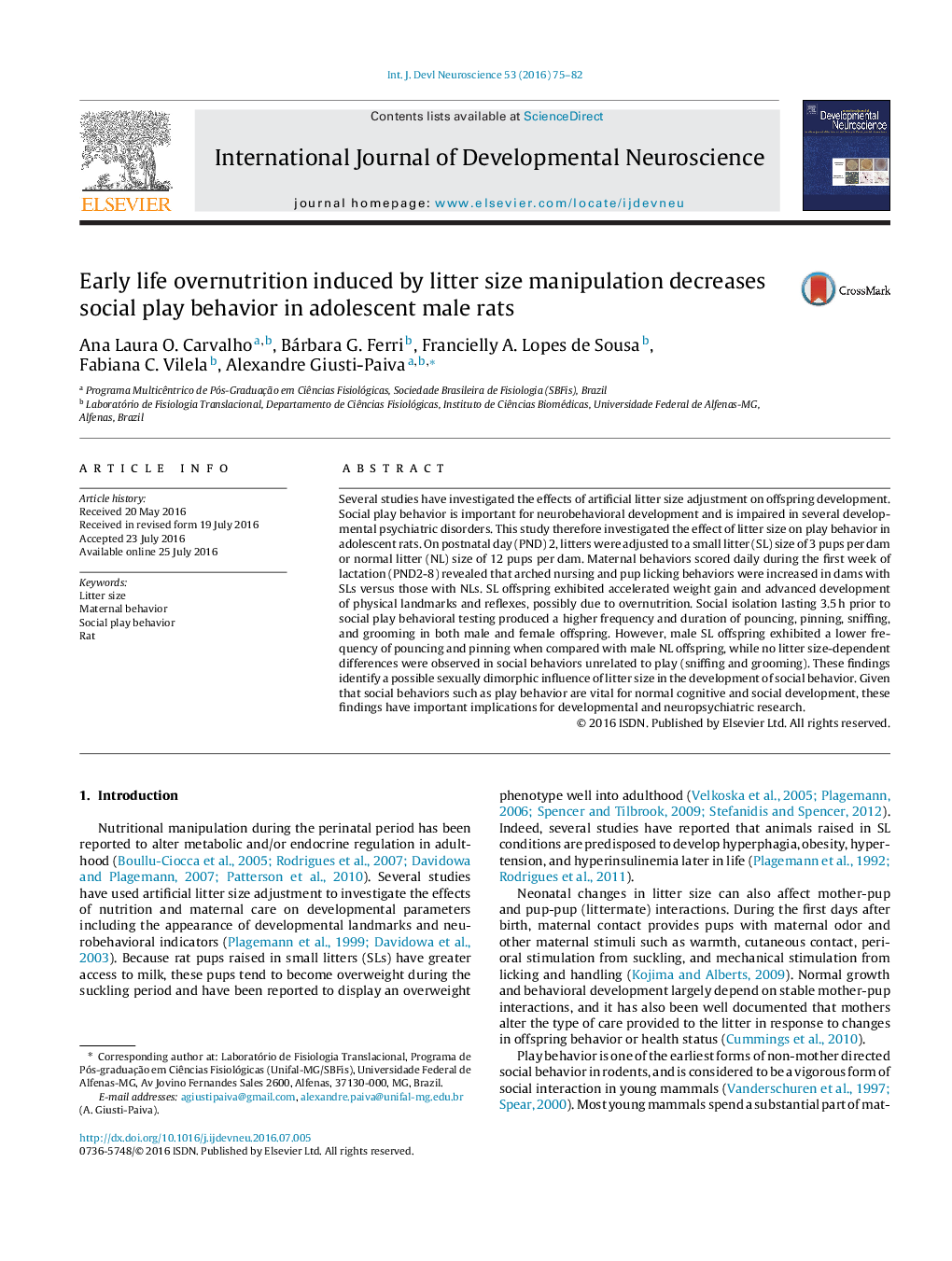| Article ID | Journal | Published Year | Pages | File Type |
|---|---|---|---|---|
| 2785617 | International Journal of Developmental Neuroscience | 2016 | 8 Pages |
•Arched nursing and pup licking behaviors were increased in dams with small litters.•Small litter offspring exhibited accelerated weight gain and advanced development.•Male from small litters exhibited a lower frequency of pouncing and pinning.
Several studies have investigated the effects of artificial litter size adjustment on offspring development. Social play behavior is important for neurobehavioral development and is impaired in several developmental psychiatric disorders. This study therefore investigated the effect of litter size on play behavior in adolescent rats. On postnatal day (PND) 2, litters were adjusted to a small litter (SL) size of 3 pups per dam or normal litter (NL) size of 12 pups per dam. Maternal behaviors scored daily during the first week of lactation (PND2-8) revealed that arched nursing and pup licking behaviors were increased in dams with SLs versus those with NLs. SL offspring exhibited accelerated weight gain and advanced development of physical landmarks and reflexes, possibly due to overnutrition. Social isolation lasting 3.5 h prior to social play behavioral testing produced a higher frequency and duration of pouncing, pinning, sniffing, and grooming in both male and female offspring. However, male SL offspring exhibited a lower frequency of pouncing and pinning when compared with male NL offspring, while no litter size-dependent differences were observed in social behaviors unrelated to play (sniffing and grooming). These findings identify a possible sexually dimorphic influence of litter size in the development of social behavior. Given that social behaviors such as play behavior are vital for normal cognitive and social development, these findings have important implications for developmental and neuropsychiatric research.
